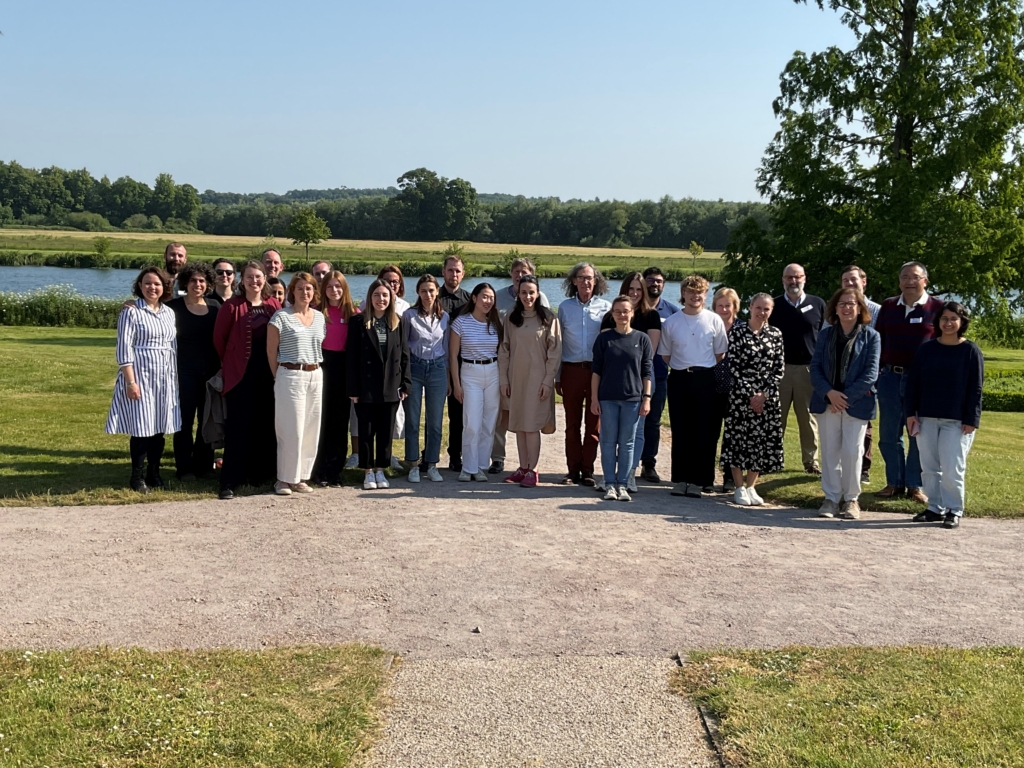PD Functional Genomics | 2020
Dissecting the Mechanisms Underlying Disease Progression
Study Rationale: The progression of Parkinson’s disease is very variable, with some individuals having a rapid course and others having a longer and more benign course. Team Hardy believes that by understanding the genetics and the mechanistic basis of this variability, they will be able to design therapies to slow Parkinson’s progression. Team Hardy has already found that GBA mutations lead to a rapid disease course and that LRRK2, linked to familial forms of Parkinson’s, influences the course of parkinsonism in another disease: progressive supranuclear palsy. They will test whether modulating these enzymes influences the course of pathology spread in a pre-clinical model of progression as a validation of this approach to disease treatment.
Hypothesis: Team Hardy wants to find and understand the genes that are involved in Parkinson’s progression and test whether modulating them pharmacologically influences disease progression.
Study Design: Through genetic analysis, Team Hardy will find genes that influence the progression of parkinsonism, and then assess the mechanisms by which they affect disease development. They have already found that GBA and LRRK2 influence clinical rates of decline so Team Hardy will test, in a mouse model of pathology progression, whether inhibiting these enzymes influences pathology spread and thereby develop a relevant platform to test drugs for slowing disease progression.
Impact on Diagnosis/Treatment of Parkinson’s Disease: This research will impact Parkinson’s care in three ways. First, by understanding the genetics of rate of decline, these data can be factored into clinical trial design and possibly more generally into clinical practice. Second, the identification of pathways involved in disease progression is likely to reveal further drug targets. And thirdly, the testing of GBA and LRRK2 inhibitors in a mouse model of disease progression will test this as a valid approach to treatment development.
Leadership
Project Outcomes
Team Hardy will dissect the genetic and gene expression variability underlying differences in the rate of decline inherent in PD and move towards therapies which slow this decline. View Team Outcomes.
Team Outputs
Click the following icons to learn more about the team’s outputs:
Overall Contributions
Here is an overview of how this team’s article findings have contributed to the PD field as of June 2025. There are two different categorizations of these contributions – one by impact to the PD community and a second by scientific category.
Impact

Category

Featured Output
Below is an example of a research output from the team that contributes to the ASAP mission of accelerating discoveries for PD.
GPNMB is a biomarker for lysosomal dysfunction and is secreted via LRRK2-modulated lysosomal exocytosis
Team Hardy evaluates GPNMB, a previously studied target in PD, and observes that its release from macrophages upon lysosomal stress may serve as a biomarker of disrupted lysosomal processes relevant to PD.
Team Accolades
Members of the team have been recognized for their contributions.
- Open Science Champions: Alejandro Martinez-Carrasco, Regina Reynolds, Mina Ryten, Oke Avwenagha, Raquel Real, Karishma D’Sa
- Network Spotlights: Oke Avwenagha, Zane Jaunmuktane, Toby Curless, Benjamin O’Callaghan, Raquel Real, Sonia Garcia-Ruiz, Oke Avwenagha, Maryam Shoai, Aine Fairbrother-Browne

Other Team Activities
- Working Groups:
- Single Cell Multi(Omics) – Mina Ryten (Co-Chair), Zane Jaunmuktane (Subgroup Lead), and Huw Morris (Subgroup Lead)
- ANALYSE Neuropathology – Zane Jaunmuktane (Co-Chair)
- Interest Groups:
- Sequencing/Omics – Mina Ryten (Co-Chair)
- GWAS Functional Validation – Huw Morris (Chair)
- Protocol Particulars Interview: Verifying the Integrity of Data Sets Uploaded to Amazon S3 with Sonia García-Ruiz, PhD
In the News
- Parkinson’s disease research at UCL gets £19m boost (University College London, press release, September 16, 2020)











